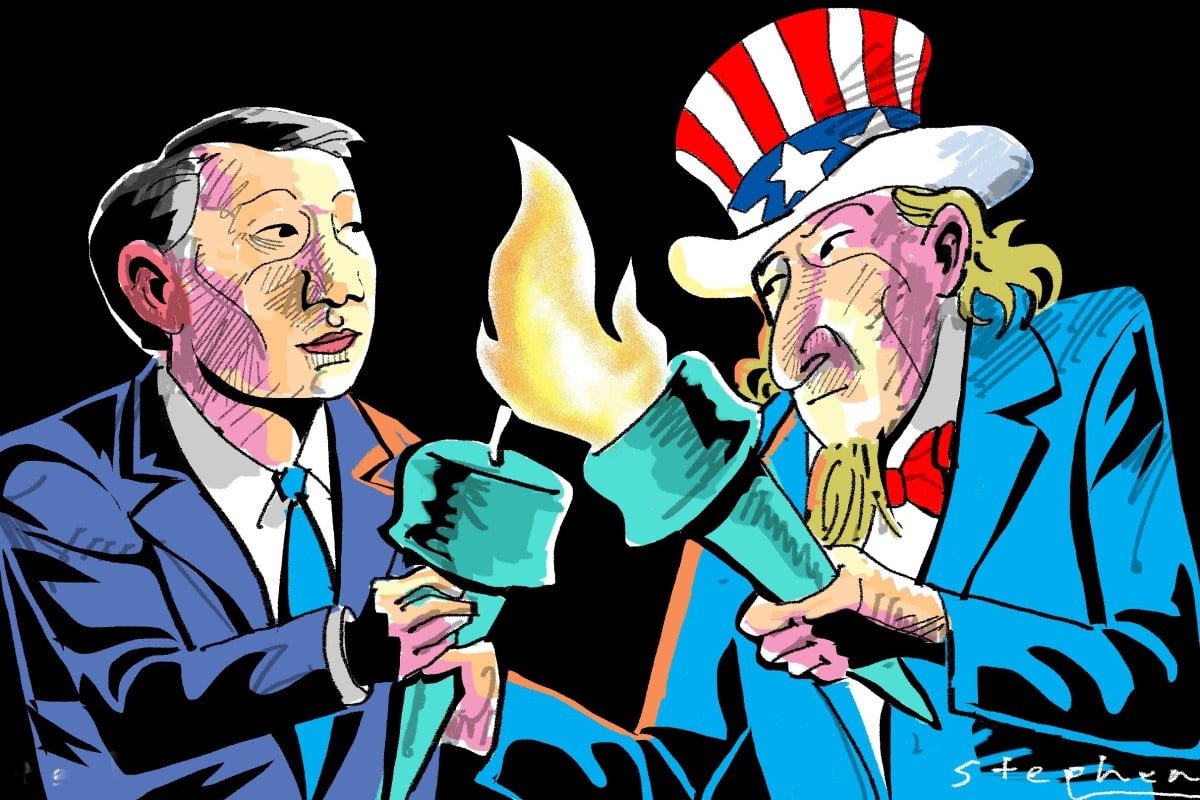Kelly Magsamen
Many of these questions revolve around China. How will the United States adjust to a world in which it is no longer the only dominant global power? Can the region change with it?
Over the past decade, US policies – from the “pivot to Asia” to the “free and open Indo-Pacific” – have recognised the region’s importance to the security of its citizens and allies. These policies aim to promote US interests and values, including the rule of law, freedom of navigation, economic opportunity and the universal rights of all peoples.
However, China’s military modernisation, combined with its assertive territorial strategy, is challenging US primacy. Meanwhile, its historic growth over the past two decades has made it the primary economic force in the region.
China is the largest trading partner of Asean and of key US allies including Australia. Washington – hobbled by its withdrawal from the Trans-Pacific Partnership and its lack of a substitute regional economic vision – has retreated at the precise moment China is surging.
Its self-wounding trade war with Beijing, coupled with trade spats with Brussels and Seoul, has divided it from the very partners it needs to marshal collective pressure on China.
We are at a critical point for US policy in the Asia-Pacific. The post-second-world-war liberal international order is no longer tenable. America’s policymakers need to decide on the goals of its policy in Asia and whether it and its allies are positioned to achieve them.
To deal with the Chinese military threat effectively, the US needs an alliance strategy – a regional plan in which its allies work as much with each other as with us. One of America’s greatest strategic assets is its global alliance system. US allies in the region are far more capable and powerful than they were following the second world war.
Trump is stress-testing this system. By taking a crude transactional approach to sharing the burden of security, he is damaging these relationships at the worst possible time.
But the issues around US alliances reach far beyond Trump. Many in the region are questioning the value of being aligned with the US. They are asking whether America will be there when it truly matters and whether the benefits are worth the tension with China.
First made-in-China aircraft carrier, the Shandong, enters service
The United States and its allies need to reconsider what purpose these alliances serve. Are they purely defence and security arrangements? Are the understandings and values that underpin them clear? What are the mutual expectations, and do these need to be adjusted in a changing Asia?
Given the challenges of capacity and political will within regional and international institutions, such as the Association of Southeast Asian Nations and the United Nations, the future of multilateralism is likely to be more ad hoc arrangements among like-minded states.
US policy in recent years has sought to involve its most capable allies, including Australia and Japan, in trilateral arrangements and in the Quad. These arrangements can enable action and far more robust coalitions. For example, in the digital domain, the collective power of these countries will make cooperation essential in the larger contest between democracy and authoritarianism.
Without strong leadership in democracies and more multilateralism, China will have a much freer hand to bend the international order towards its authoritarian preferences.
As we move further into this century, the US and its democratic allies must take a more competitive approach to upholding and defending liberal-democratic values in the Asia-Pacific and beyond. We need to create a democratic bulwark in the face of rising authoritarianism, not just with China.
China is seeking to shape global governance in illiberal directions. Its vision, as China scholar Melanie Hart notes, is “a system based on authoritarian governance principles in which nations negotiate issues bilaterally instead of following common rules and standards. From a liberal democratic perspective, if Beijing succeeds in bringing about that vision, the world will be less free, less prosperous, and less safe.”
The region’s democracies need to accept this and see our collective advantage more clearly. Our values are our distinguishing feature. They underpin our long-term resiliency, making our governments more accountable to citizens. And they remain attractive to people around the world, from Hong Kong to Tehran.
Without sustained US and international pressure to advance universal rights and democratic freedoms, authoritarian governments will only push the boundaries of control further. There is an intense ideological dimension to this competition that cannot be ignored.
Without more rigorous cooperation between the US and its allies, China will step in to shape the order it wants at our expense. We must act to preserve our personal freedoms, ensuring that democracy in Asia does not contract further and proving that might does not become right.
This will require collective action among the region’s democracies to ensure personal freedom of expression in the digital domain and to uphold the rule of law and push for the peaceful resolution of international disputes.
Regardless of whether Trump wins or loses the election on November 3, the changing security, economic and political dynamics in the region, and the tough questions they give rise to, will loom over US policymakers and allies.
The United States and its allies will need to address them together, to define a common vision of an Asia-Pacific in which their values and prosperity can withstand changes, now and into the future.

No comments:
Post a Comment